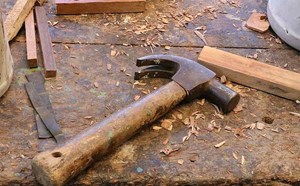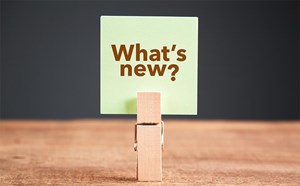
The Value of Presence
Trent She, MD, FACEP
Chair, ACEP Ultrasound Resident Education Subcommittee
David Suwondo, MD
Chair-Elect, ACEP Ultrasound Resident Education Subcommittee
Tiffany C. Fong, MD, FACEP
Immediate Past Chair, ACEP Ultrasound Resident Education Subcommittee
Michael Secko, MD, FACEP
Incoming Chair-Elect, ACEP Ultrasound Resident Education Subcommittee
“Your time is valuable. Advocate for yourself and your time.”
That was a maxim I heard from my academic faculty in both residency and fellowship - a phrase I heard emphasized multiple times during my training. It was the truth. After a year pursuing an advanced emergency ultrasound fellowship, I had acquired a new skill that would separate me from other candidates graduating from an EM residency. I knew my training would make me a valuable asset to my new department, and because of that, I felt I should be appropriately compensated for all the work and new ideas I planned to implement at my new job.
Unfortunately, the world of academia does not always think or work that way. I thought that because of my fellowship training, I would be offered a position with the exact buydown and protected time I wanted in order to conduct all the ultrasound activities I had envisioned. But as I was interviewing for jobs, I noticed a hard truth: most institutions were not willing to commit extra time or money to someone whom they did not know very well and whose CV was not yet extensive, no matter who vouched for you. I was fortunate to start my first job out of fellowship with some reduction in clinical time, but not enough to cover everything I wanted to do. To accomplish all of my academic goals, I knew I needed more time.
To get this desired buy-down time, I learned quickly about the value of “presence.” Presence, defined as the state of being available, does not in a sense represent you, but rather how your department sees you. It encompasses everything that your colleagues notice about you, whether you are physically in the department or not. And presence is one of the keys to demonstrating your worth and gives your administration justification to support you. Despite my training and CV, my chair did not truly know me or the quantity of effort required to accomplish my goals when he hired me. As a result, I had to make sure that my chair and my department knew not only that I was around, but also that when I was around, I was working hard to promote ultrasound activities and to improve the department.
Certainly, the easiest way to show your “presence” is to simply be in the department 24/7, but we all know that is not at all good for our own personal wellness. We need to find better ways to maximize our “presence” in the time that we do spend in the department.
Here are some tips to increase your presence (without necessarily increasing your time in the department):
- Schedule your scanning rounds or shifts to maximize visibility. This can change depending on your department. For example, there’s a daily huddle at 9:15am in our emergency department, and our chair or medical director are frequently present. Often, I try to schedule my scan shift so I too can be present around the time of huddle. Noting when your chair or your medical director are working, and timing your scan shifts or presence to coincide with that time can improve the visibility of your ultrasound-related efforts.
- Schedule convenient QA or Image Review. Similarly to above, if you schedule QA or image review during a time and in a location convenient for other faculty or residents, you will notice that extra people can and will often swing by to catch some pearls or to even join in review. Scheduling QA or Image Review adjacent to residency conference or faculty meeting (both time-wise and location-wise) is one way to start.
- Keep an open office door (or do non-clinical work in a visible area). My office happens to be right next to the residency lounge. When I’m in my office, my door is often open so trainees know I’m available and free for a chat. Although it sometimes hinders your productivity, it can lead to some smart and powerful conversations without the time pressures of clinical work. If you don’t happen to have an office or somewhere you can do work, I find that a quiet nook in the department or a public workspace close to the department can work also.
- Be inclusive of all learners when you are in the department. When I am on rounds, I always do my best to include the clinical team in teaching as well as the academic team. It allows the clinical team to also benefit from the excellent bedside teaching you are providing, but also allows them to ask questions and see you in the department and recognize your ultrasound expertise.
- Be inclusive of all learners even when you are not in the department. When scheduling events, be mindful that your target audience might be larger than you think. Although certain lectures may be targeted for ultrasound fellows, inviting advanced residents and medical students shows that you care about their learning as well, and can also help promote interest in pursuing an ultrasound fellowship.
- Disseminate interesting cases and learning points. When you have a really interesting case, don’t feel you have to keep it to yourself! Take a few minutes to download the image and write out a short explanation of the case. Better yet, consider having your residents on scan rounds review the case and type up an explanation that you can send onwards!
- Seek out the critically ill patients on rounds or the ones that may need an ultrasound-guided procedure. Not only do these patients present excellent pathology to see sonographically, but it is likely more providers will be there to help you and learn from you. Similarly, patients that need nerve blocks or venous access allow you to teach an ultrasound-specific skill that other learners may not have access to.
- Look for opportunities to demo or trial new machines. As you are performing machine maintenance or staying in touch with your vendors, ask them if they have any new devices or machinery that you can try out. A new ultrasound machine in the department (even temporarily) is a presence that can be there when you are not.
- Let people know about the good and the bad. When doing ultrasound review, don’t forget to remind people about the great saves that they have in addition to the areas they can improve on.
- Always be open and encouraging to feedback. Encouraging emails and text messages when people have questions that can be answered on your own time can help you with questions that you may not be able to answer now.
- Incorporate ultrasound into your department’s existing faculty programming. Consider presenting a recent ultrasound-related case (an ultrasound great catch, for example) with a related ultrasound teaching point as a recurring 5-minute agenda item at each faculty meeting. Consider scheduling scan time each July coinciding with new faculty orientation/onboarding to offer an ultrasound refresher, review departmental ultrasound policies and procedures, or provide hands-on time with your department’s ultrasound machines. Survey your faculty to identify ultrasound-related topics of interest or need, and incorporate these into your department’s existing faculty development programming: chances are, the nerve block mini-lecture you created for your residents is something that some of your faculty colleagues would be interested in as well.
- Incorporate ultrasound into your residency’s existing residency-wide events. If your residency has an annual procedure day, intern orientation, a Sim Wars day, or a Wilderness Med Wars day, and you will be in attendance, offer to run an ultrasound-related station or provide a handheld ultrasound machine for incorporation into one of the cases. Introduce yourself and your role for those that may be unfamiliar to you.
- Keep your ultrasound machines in good working order. Poorly-kept or inoperable machines reflect poorly on the ultrasound division, whereas a visible and proactive approach to machine maintenance demonstrates your value in ensuring their continued availability and uptime in the department. The knowledge you gain and relationships you develop with biomedical engineering, IT, and other services in your hospital may help you be tapped for future roles.
The more your presence is felt in the department, the more your departmental administration will see your work and be likely to reward you for it. With more time and buydown, the better your overall presence can be as well.



